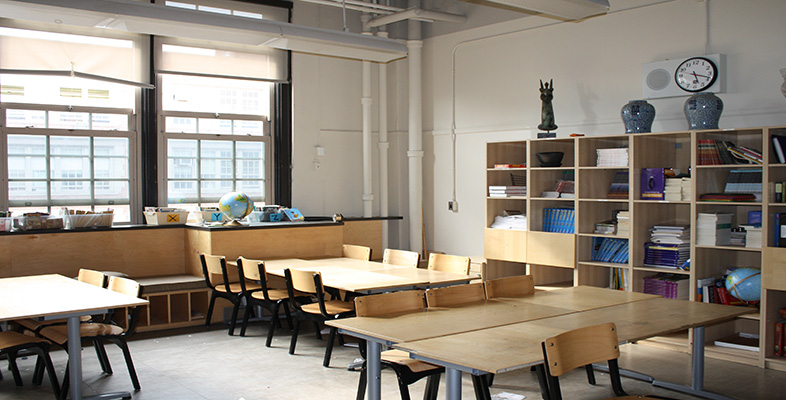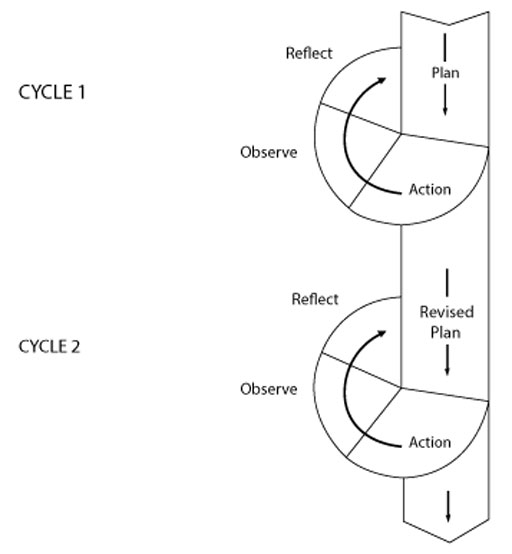3.2 Action research
Action research is best considered to be a strategy rather than a specific method (McNiff and Whitehead, 2011; Wilson, 2013). It involves practitioners systematically investigating their own practice, with a view to improving it. Action research involves the following steps:
- Identify a problem that you want to solve in your classroom This might be something quite specific such as why certain pupils do not answer questions or find an aspect of your subject hard or de-motivating, or it might be something more general like how to organise group work effectively.
- Define the purpose and clarify what form the intervention might take. This will involve consulting the literature and finding out what is already known about this issue.
- Plan an intervention designed to tackle the issue.
- Collect empirical data and analyse it
- Plan another intervention This will be based on what you find and will be designed to further understand the issue that you have identified.
Action research is a cyclical process. Through repeated intervention and analysis, you will come to understand the issue or problem and hopefully to do something about it.
Action research suffers from some of the same criticisms as case studies: can the results be generalised? Rigour in this case comes from the careful planning and clear reporting. The findings will be ‘believable’ if the researchers explain what they hope to achieve and how the intended actions link specifically to the problem. The process needs to be explicit, and underpinned by a clear framework of ideas against which the findings will be judged (Kemmis, 1993).
Activity 7: Case study 2
Read through Ben’s case study [Tip: hold Ctrl and click a link to open it in a new tab. (Hide tip)] and think about the questions.
Use the ethical checklist to identify the ethical issues in Ben’s project.
- What might he have needed to do before starting his project and how might the ethical issues have affected his research design?
- Summarise his sources of data.
- How do you think this work might have affected his teaching in the future?
- Is there anything he could have done to ensure that his work had a wider impact?
Discussion
This is a typical action research project: a series of interventions, with the evidence from one intervention, influencing the next. As a result of this ‘cycle’ there is a good chance that Ben will have learnt a great deal about teaching mixed ability groups.
He could have increased the ‘impact’ by involving others in his project. As in Lucy’s case, he would need to inform the class about what he was doing and seek permission to film in the classroom. Securing the support of the Head of Department would be sensible and might lead to offers of help. Selecting the children to interview and making the time to conduct the focus groups might also be an issue.

